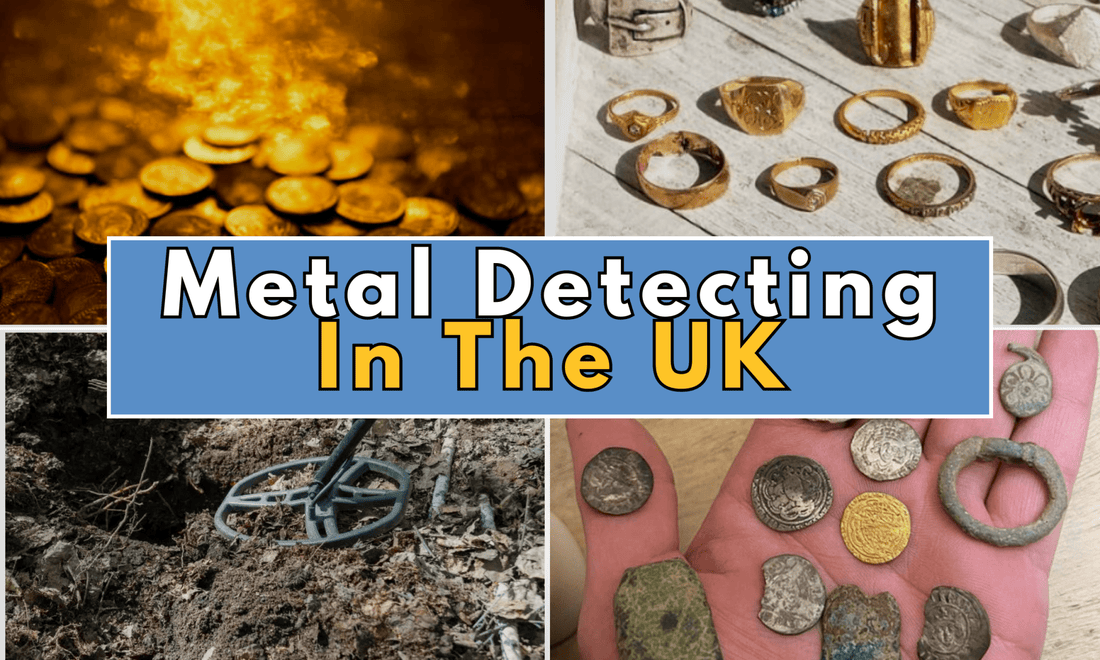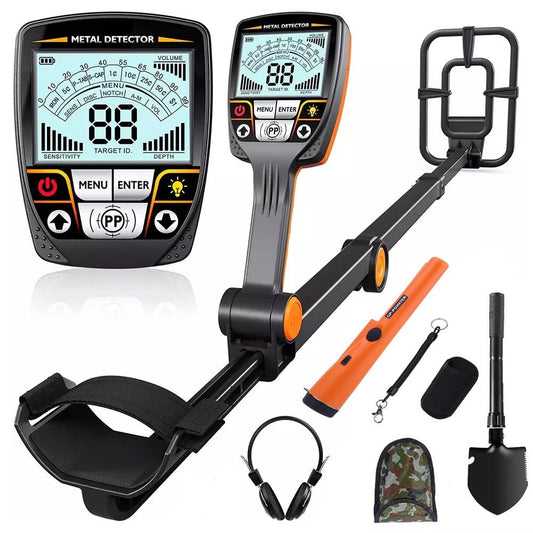
Best Places to Metal Detect in UK: Ultimate Guide[2025]
Share
Metal detecting in the UK offers a unique blend of history, adventure, and the potential for amazing discoveries.
With its rich archaeological heritage spanning thousands of years, the UK is a treasure trove for detectorists. But where is the best place to metal detect in UK?
This comprehensive guide will explore the top locations, legal considerations, and tips for successful detecting across Britain in 2025.
Why the UK is a Metal Detectorist's Paradise
Before we dive into specific locations, let's understand why metal detecting in the UK is so popular:
-
Rich History: From Roman settlements to medieval battlefields, the UK's soil is laden with historical artifacts.
-
Treasure Act: The UK's Treasure Act of 1996 provides a clear framework for reporting and rewarding significant finds .
-
Diverse Landscapes: From coastal areas to inland fields, the UK offers varied detecting environments.
-
Active Community: A thriving community of detectorists and supportive metal detecting clubs.
Top Regions for Metal Detecting in the UK

1. East Anglia
East Anglia, comprising Norfolk, Suffolk, and parts of Cambridgeshire, is often considered the best place to metal detect in UK:
-
Rich in Anglo-Saxon and Roman artifacts
-
Flat terrain ideal for detecting
-
Notable finds include the Sutton Hoo treasure
2. Yorkshire
Yorkshire's vast landscapes offer excellent opportunities for metal detecting:
-
Site of numerous Roman settlements
-
Medieval battlefields like Towton
-
Coastal areas for beach detecting
3. South West England
The South West, including Cornwall and Devon, is known for:
-
Celtic and Roman artifacts
-
Potential for shipwreck finds along the coast
-
Historic mining areas with potential for gold nuggets
4. Wales
Wales offers unique detecting opportunities:
-
Celtic and Roman sites
-
Medieval castles and their surroundings
-
Gold panning potential in certain rivers
5. Scotland
While Scotland has stricter laws regarding metal detecting, it still offers potential:
-
Viking artifacts in coastal areas
-
Historic battlefields like Culloden
-
Permission-based detecting on private lands
Best Types of Locations for Metal Detecting in the UK

-
Beaches: Coastal areas are popular for lost modern items and historical artifacts.
-
Plowed Fields: Freshly plowed fields can reveal items brought to the surface.
-
Ancient Pathways: Old roads and paths often yield interesting finds.
-
Roman Sites: Areas of known Roman activity are treasure troves for detectorists.
-
Battlefields: Historic battle sites can reveal military artifacts.
Legal Considerations for Metal Detecting in the UK
Before you start detecting, be aware of the legal framework:
-
Obtain Landowner Permission: Always get permission before detecting on private land.
-
Report Treasure: The Treasure Act requires reporting of potential treasure finds
-
Avoid Scheduled Monuments: It's illegal to detect on protected historical sites without permission.
-
Join the Portable Antiquities Scheme: This voluntary program encourages the recording of archaeological objects found by the public .
Tips for Successful Metal Detecting in the UK

-
Research Historical Maps: Study old maps to identify promising areas.
-
Join a Local Club: Metal detecting clubs offer valuable insights and group permissions.
-
Invest in Quality Equipment: A good detector suited for UK soil conditions is essential.
-
Record Your Finds: Keep detailed records of your discoveries and their locations.
-
Respect the Countryside Code: Follow guidelines for responsible outdoor activities.
Conclusion: Unlocking the UK's Hidden Treasures
So, where is the best place to metal detect in UK? The truth is, the entire country offers incredible potential for detectorists. From the Roman-rich fields of East Anglia to the historic beaches of Cornwall, each region has its unique treasures waiting to be discovered.
Remember, successful metal detecting in the UK is not just about finding valuable items. It's about connecting with history, contributing to archaeological knowledge, and enjoying the great British outdoors. Always detect responsibly, respect the land and its history, and follow all legal guidelines.
Whether you're a seasoned detectorist or a newcomer to the hobby, the UK's diverse landscapes and rich history offer endless opportunities for exciting discoveries. So grab your detector, do your research, and embark on your own treasure-hunting adventure across Britain. Who knows what piece of history you might uncover in your next dig?
Happy hunting, and may your searches be fruitful and fascinating!





1 comment
hi are there any metal detecting clubs within uk as i really want to join one im willing to travel